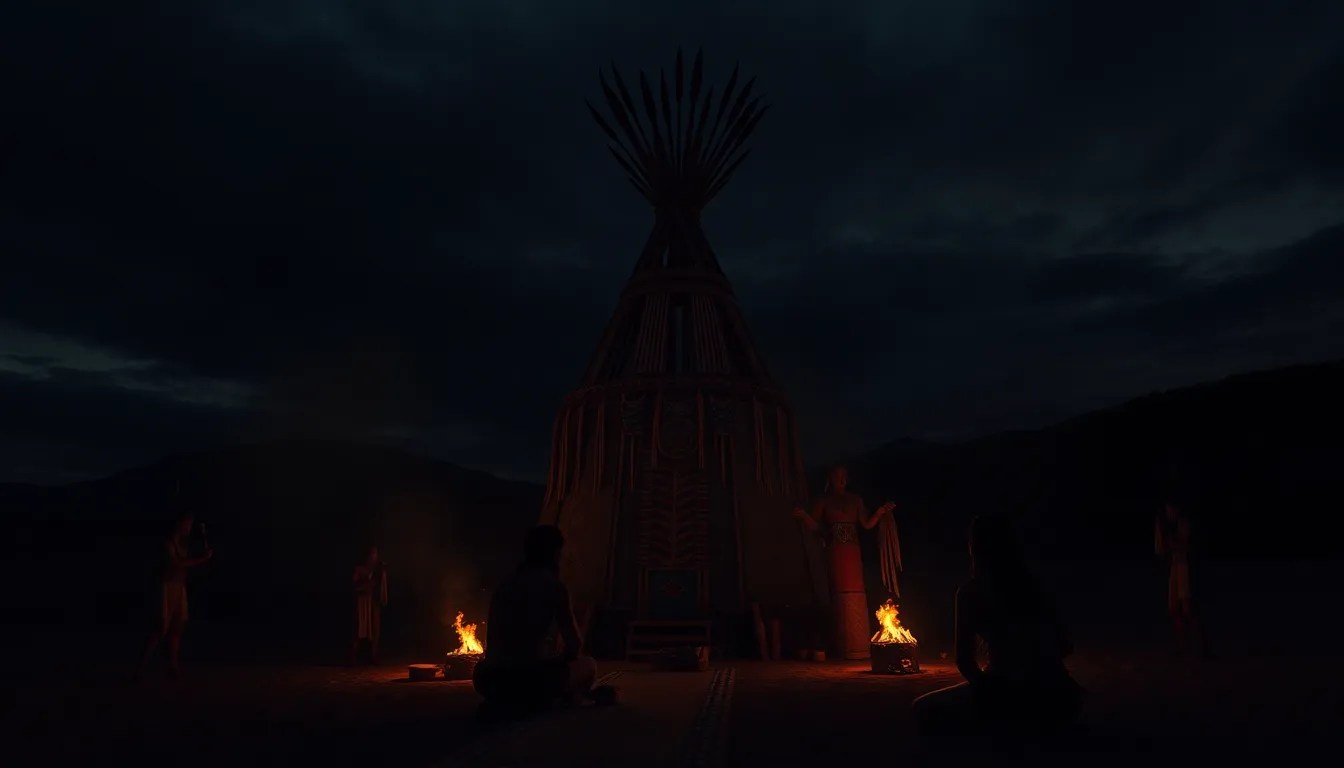Apache Rituals: A Deep Dive into Spiritual Practices and Ceremonies
I. Introduction to Apache Mythology and Spirituality
The Apache people, a group of culturally rich tribes including the Western Apache, Chiricahua, and Mescalero, have a profound connection to their spiritual beliefs and practices. Each tribe has its unique traditions, yet they share overarching themes that emphasize the importance of nature, community, and the spirit world. Apache mythology serves as a framework for understanding the universe, guiding moral conduct, and fostering a deep sense of identity.
Mythology plays a crucial role in Apache life; it is interwoven with daily activities and rituals, imparting lessons and reinforcing cultural values. Through stories and ceremonies, the Apache people connect with their ancestors and the natural world, ensuring that their spiritual heritage thrives in contemporary society.
II. Historical Context of Apache Rituals
The roots of Apache spiritual practices can be traced back centuries, influenced by their environment, social structures, and historical events. Originally, Apache rituals were deeply connected to the land and its resources, reflecting a profound respect for nature.
Over time, the arrival of European settlers and the resulting conflicts significantly impacted Apache spirituality. The imposition of new religions and cultural practices led to adaptations within Apache rituals, as they sought to preserve their identity amidst external pressures. The resilience of Apache culture is evident in how they have maintained their spiritual practices while integrating aspects of other influences.
III. Key Spiritual Beliefs of the Apache
At the heart of Apache spirituality is the belief in a Creator, often referred to as the Great Spirit or the Creator of all things. This entity is viewed as a guiding force, embodying the principles of balance and harmony in the universe.
The Apache also believe in the interconnectedness of all living beings. Nature is not merely a backdrop for human activity; it is a living entity that possesses spirit and significance. This perspective fosters a deep respect for the environment, emphasizing the responsibility of the Apache people to protect and honor the land.
IV. Major Apache Ceremonies
Apache rituals are rich in symbolism and meaning, with several key ceremonies that stand out for their cultural importance:
- Sunrise Ceremony: This ceremony marks a young woman’s transition into adulthood, symbolizing rebirth and renewal. It involves singing, dancing, and the blessing of the participants by elder women.
- Enemy Way: A healing ceremony that addresses the psychological impact of warfare and loss. It serves to cleanse and restore balance to individuals who have experienced trauma.
- Chantway: A series of healing ceremonies that involve lengthy chants, often lasting several days, aimed at restoring health and well-being.
Each of these ceremonies holds deep symbolism, reflecting core Apache beliefs about life, death, and the spiritual world.
V. The Role of Shamanism in Apache Spirituality
Shamans, or medicine people, play a vital role in Apache culture. They are recognized as spiritual leaders and healers, possessing a unique connection to the spirit world. The responsibilities of shamans include:
- Conducting healing ceremonies and rituals.
- Providing spiritual guidance and insight during times of crisis.
- Maintaining the balance between the physical and spiritual realms.
The healing practices of shamans often involve the use of traditional herbs, prayers, and rituals designed to restore harmony to the individual or community.
VI. The Importance of Storytelling in Rituals
Storytelling is a cornerstone of Apache rituals, serving as a means of transmitting spiritual beliefs and cultural values. Oral traditions convey myths and legends that illustrate moral lessons, historical events, and the relationship between the Apache people and the natural world.
During ceremonies, these stories are recounted to reinforce communal ties and instill a sense of identity among participants. The narratives often feature significant figures from Apache mythology, such as Coyote, who embodies both wisdom and folly, teaching lessons through his actions.
VII. Contemporary Practices and Adaptations
In modern Apache communities, there is a strong emphasis on preserving traditional rituals while adapting to contemporary challenges. Many Apache people actively engage in cultural revitalization efforts, ensuring that their spiritual practices remain vibrant and relevant.
External factors, such as intertribal exchanges and the influence of non-Native religions, have also shaped contemporary Apache spirituality. Yet, the core beliefs and practices continue to serve as a foundation for cultural identity, providing a sense of belonging and continuity for the Apache people.
VIII. Conclusion: The Significance of Apache Rituals Today
The significance of Apache rituals extends beyond mere tradition; they are essential for cultural identity and community cohesion. Spiritual practices foster connections to ancestry and the natural world, reinforcing the values that define Apache life.
As the Apache people navigate the complexities of modern society, their rituals remain a source of strength, resilience, and unity. The continued practice of these ceremonies not only honors the past but also enriches the present and future of Apache culture.



